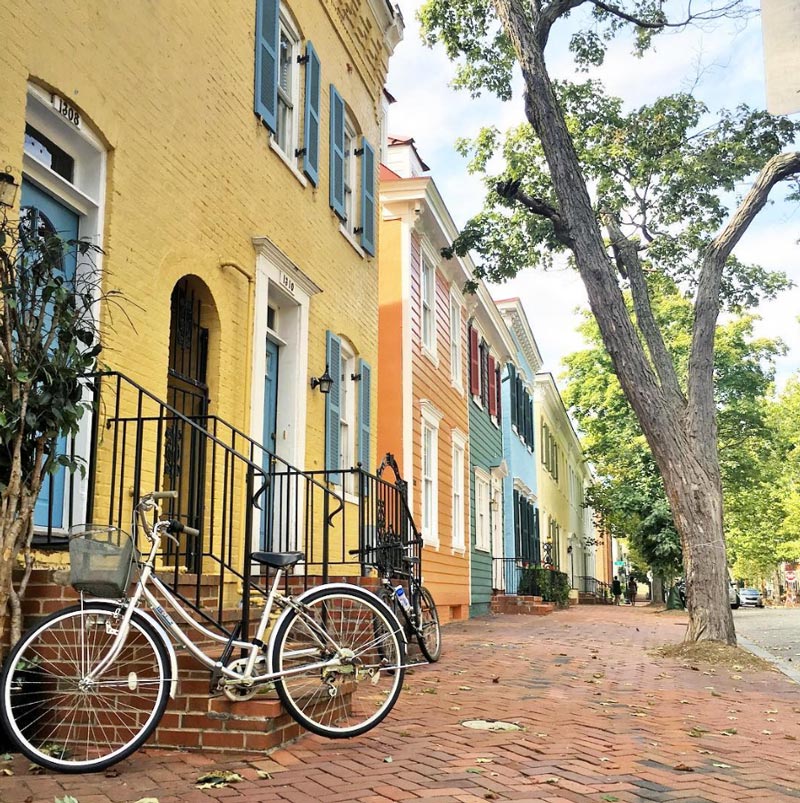The current debate around D.C.’s short-term rental options has centered on a few glaring misconceptions about the impact these rentals have on the community. Please share your thoughts with us!
Now, more than ever, we must set a few things straight on short-term rentals in D.C.
By connecting short-term rentals to the city’s affordable housing challenge and characterizing many of them as “party houses,” opponents risk punishing responsible renters for the actions of a few bad actors.
Now, more than ever, we must set a few things straight on short-term rentals in D.C.:
Whole-home rentals are distinct from home-sharing, and so are their owners
Opponents group home-sharing and whole-home rentals under one umbrella, thereby punishing the most responsible renter group and hurting the very residents the city aims to protect. Rental platforms like HomeAway and VRBO list properties that are primarily whole-homes and whose owners are invested in their property, whether that be a primary residence that they rent while out of town, or their second property that they’ve maintained for years.
We must recognize the differences between these groups, and why targeting whole-home renters does more harm than good.
Why does this matter? Whole-home renters:
• Feel ownership of their home: Because homeowners, rather than tenants, are renting, they have the most stake in maintaining positive relationships with their neighbors, the city, and ensuring nuisance issues like noise and parking are addressed. In fact, 84% of HomeAway homeowners said protecting their property was a consideration when deciding to rent, reinforcing the fact that they make sure their home is well taken care of.
• Invest in their homes and communities: Unlike tenants who are often sub-leasing their property in violation of their lease, those who rent out their whole-home have invested in upgrading their property or maintaining a second home for their family. In fact, nationwide, 70 percent of HomeAway and VRBO users use rental income to upgrade and renovate properties, thereby investing in their communities through upkeep.
• Care about their local businesses: Whole-home owners are neighbors first. Most of these homeowners provide guests with welcome books and recommendations for the restaurants and shops in their area. This generates economic activity for D.C.’s local businesses.
Whole-home rentals are not the cause of D.C.’s affordable housing challenge
The debate in D.C. has often pointed to one specific instance of apartments in Columbia Heights where rent-controlled units were rented on Airbnb. If true, this is a clear example of a bad actor who should be removed from online platforms. DCSTRA supports enforcement and regulations that ensure this kind of behavior does not happen, but it’s important to note that this is simply not the case for most homeowners who rent their property. Instead, most whole-home owners users rent their primary residence or a second property they’ve invested in for their family.
When it comes to the affordable housing argument, we must look at the facts:
• Short-term rentals are not taking over the housing market. Generally, short-term rentals are estimated to make up between .001 and .06 percent of housing stock in a given city, and D.C.’s market is on par with this estimate.
• The affordability challenge is due to new construction that removes affordable options. A recent analysis of D.C. Fiscal Policy Institute data finds that “as demolition and construction reshape the D.C. cityscape, affordable housing units have been replaced one-for-one. The problem lies in the fact that many subsidies for older affordable housing units expire and those units are then converted into higher-end condos, removing many affordable options for low-income people whose salaries have not increased proportionately to their rents.”
• D.C.’s growing population is outpacing housing supply. Since 2010, D.C. added nearly 80,000 residents, while the average rate of additional units, many of which are being built for high-income earners, has only been about 3,700 units per year. Thus, the affordable housing challenge is related to a supply-demand problem of having only 25,900 units for 80,000 new residents.
• Instead, short-term rentals help D.C. residents afford their homes. For instance, 70 percent of HomeAway users cover more than half of their mortgage through renting; 54 percent of cover three-quarters or more of their mortgage.
Legislation should not penalize responsible D.C. renters
As it stands now, D.C. City Councilmember Kenyan McDuffie’s proposal penalizes the most responsible renters. It requires owner/operators to obtain a business license, bans people who own second homes from renting them entirely, puts severe restrictions on “home-sharing” activities, all while doing nothing to address the affordable housing challenges D.C. faces.
Moving forward, the best solution is for D.C. Council to form a task force to examine short-term rentals. Rather than banning whole-home vacation rentals on false premises, this ensures all stakeholders can come together to discuss solutions that work for everyone. We need rules that allow the city, our residents, and our local business to continue to see the huge economic benefits associated with this opportunity.
